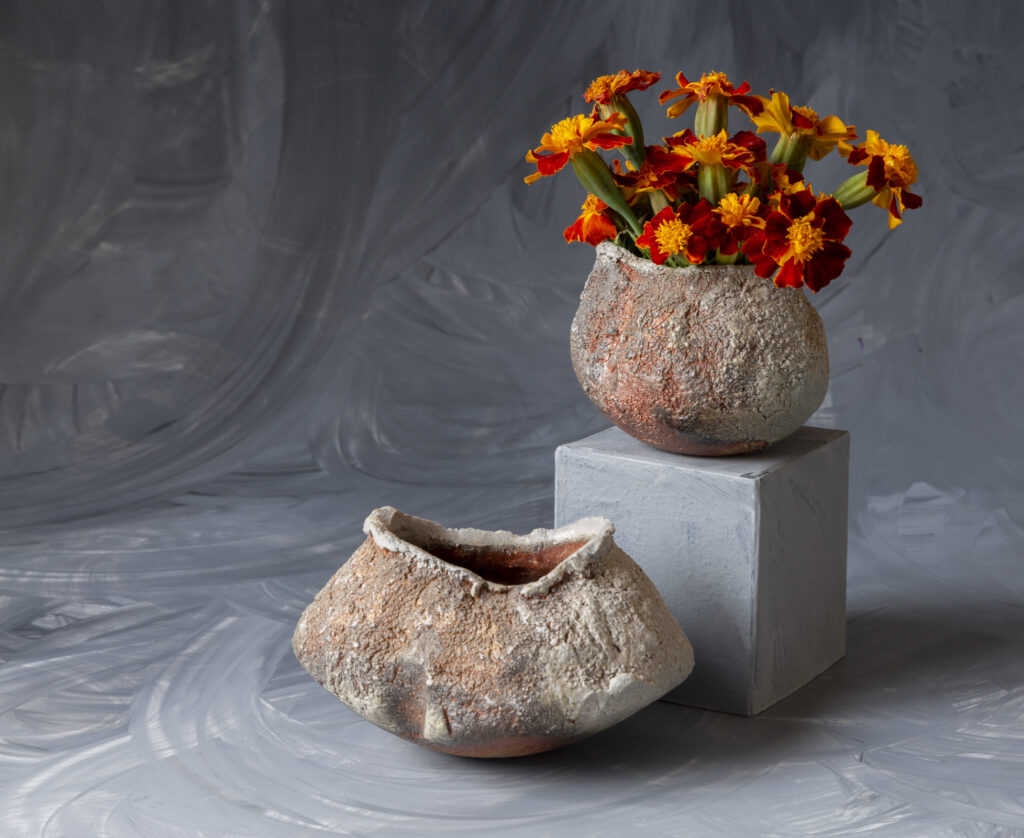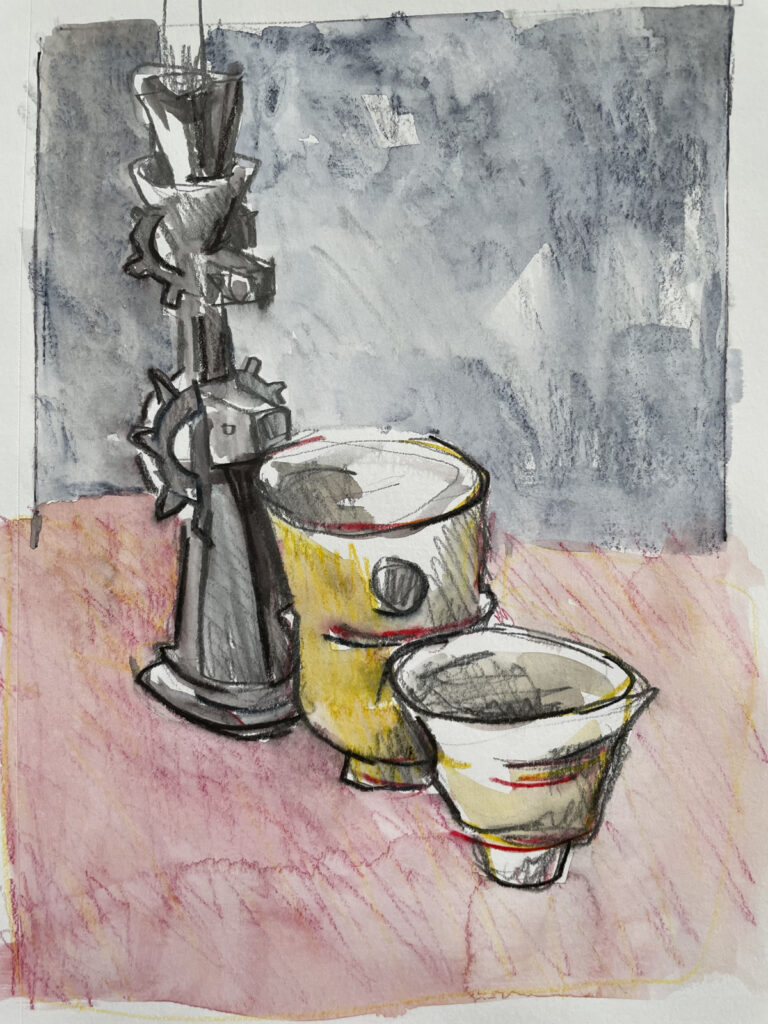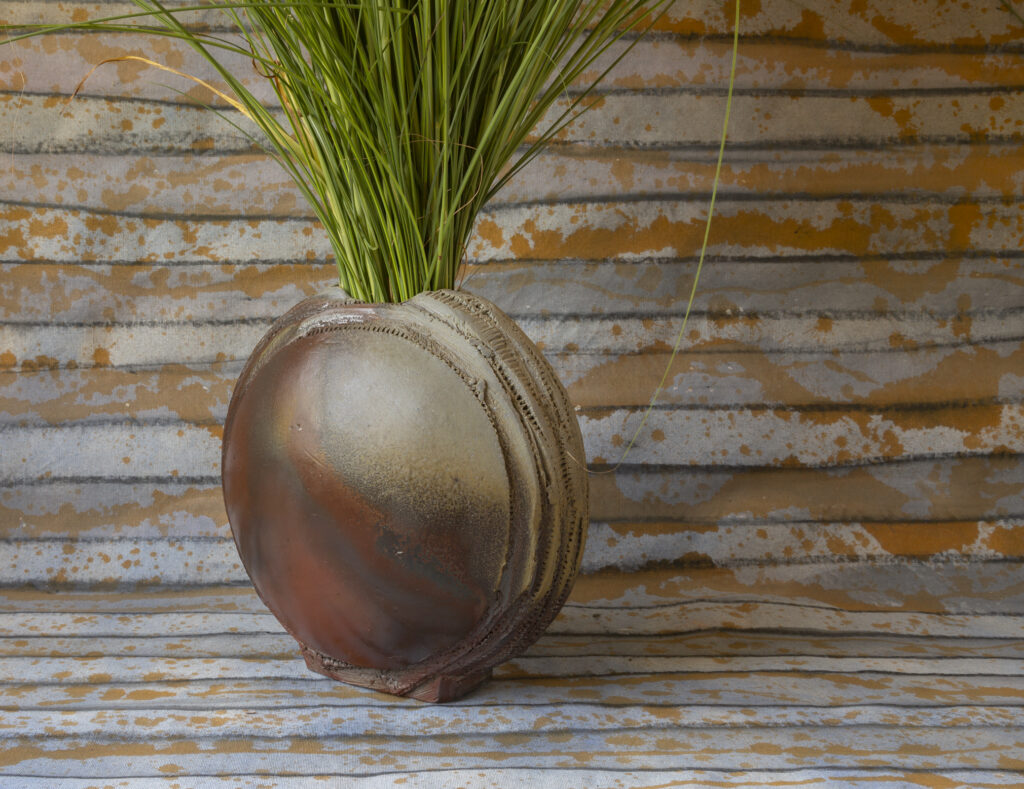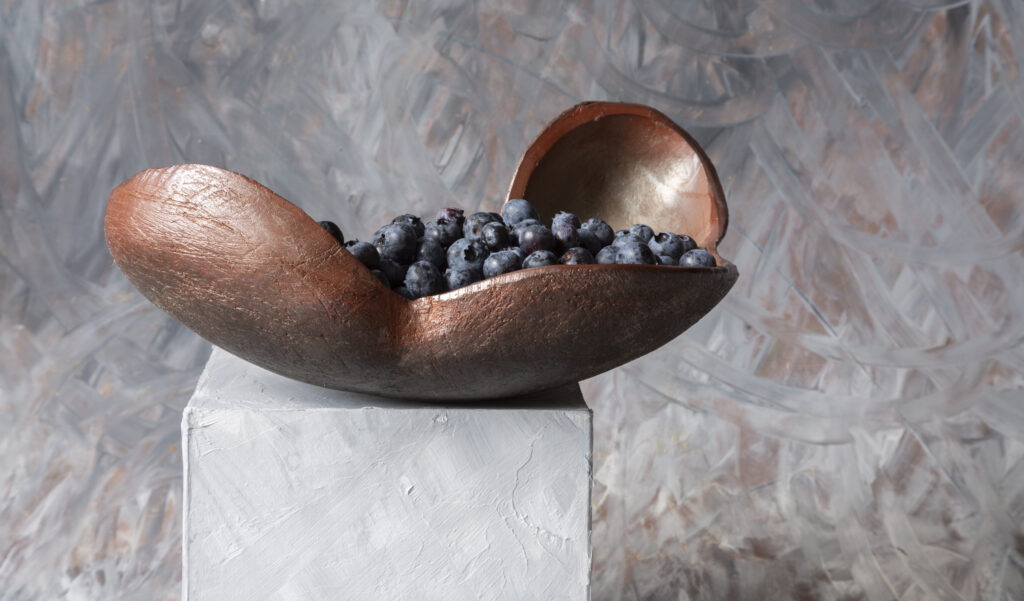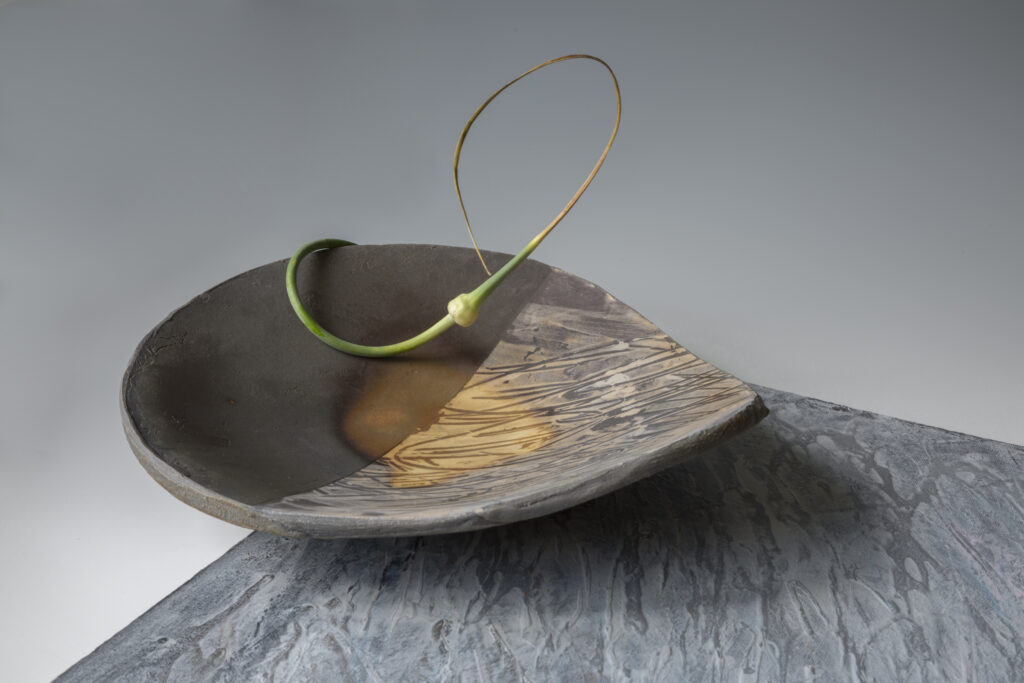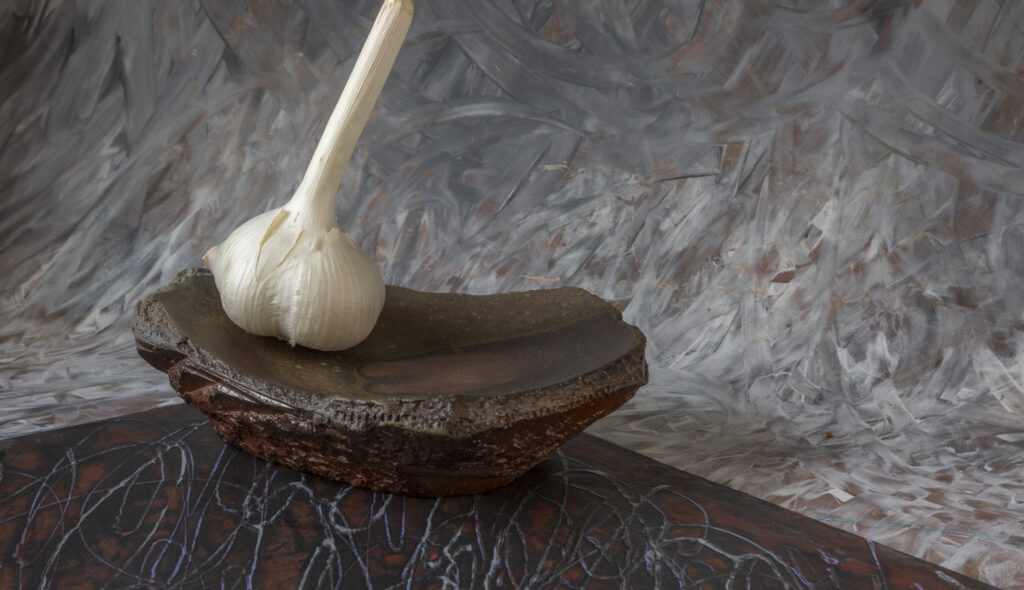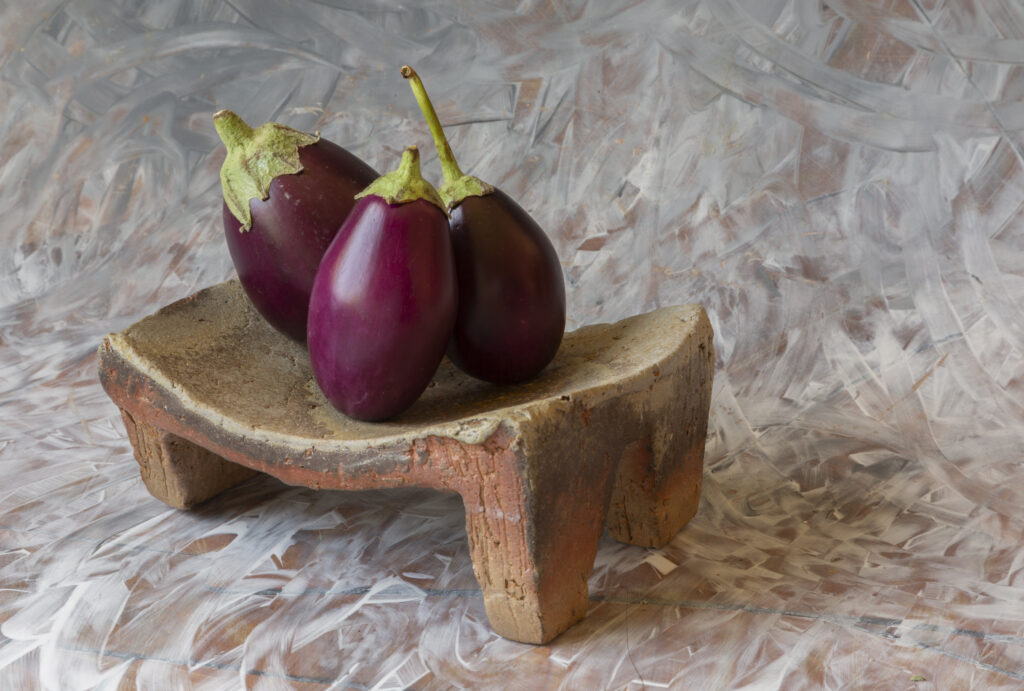Every December the long nights hit me hard. I know they are coming and I think I am prepared, but it still surprises me how easy it is to let my fear of the dark in the door. The process of writing and photographing in order to pay attention to my surrounding landscape is my way of fighting through this season. I make sure I take a walk before sunset. I notice the dawn colors. Through this process it’s as if I am sitting down with my demons and having a chat. Yesterday, when I got to the studio it was in the 40’s indoors. I wore layers including a lightweight down jacket under my sweat shirt, overalls, and a hat. I made a fire in the wood stove and stoked it until it was a balmy 62 degrees.
I worked all day prepping to glaze, then mixing glaze, and finally glazing pots. I took a break for dinner and made a peanut sauce rice noodle salad with tofu. Then I went back to work for another hour before my hands were too sore from holding pots in odd positions and too dry from washing off glaze. I returned to the house to write, take a bath, and sleep. I have to reinstate the habit of turning on the outdoor lights early so I can walk the otherwise dark return path between the house and studio. I relearn the path in the dark– listening to the rustle of leaves and the crunch of gravel. I try to find new names for the qualities of dark. I nurse the bruises on my shins when I walk into things in the shadowy way. I have not burned my fingers on the wood stove yet and I am enjoying its heat.
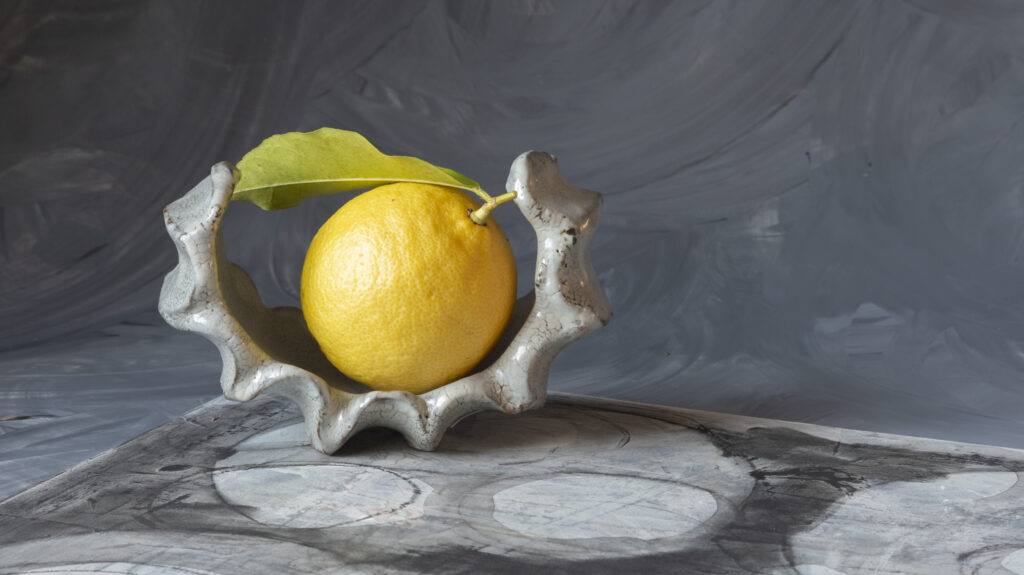
“Don’t fight your demons. Your demons are here to teach you lessons. Sit down with your demons and have a drink and a chat and learn their names and talk about the burns on their fingers and scratches on their ankles. Some of them are very nice.”
–Charles Bukowski (no citation available)
